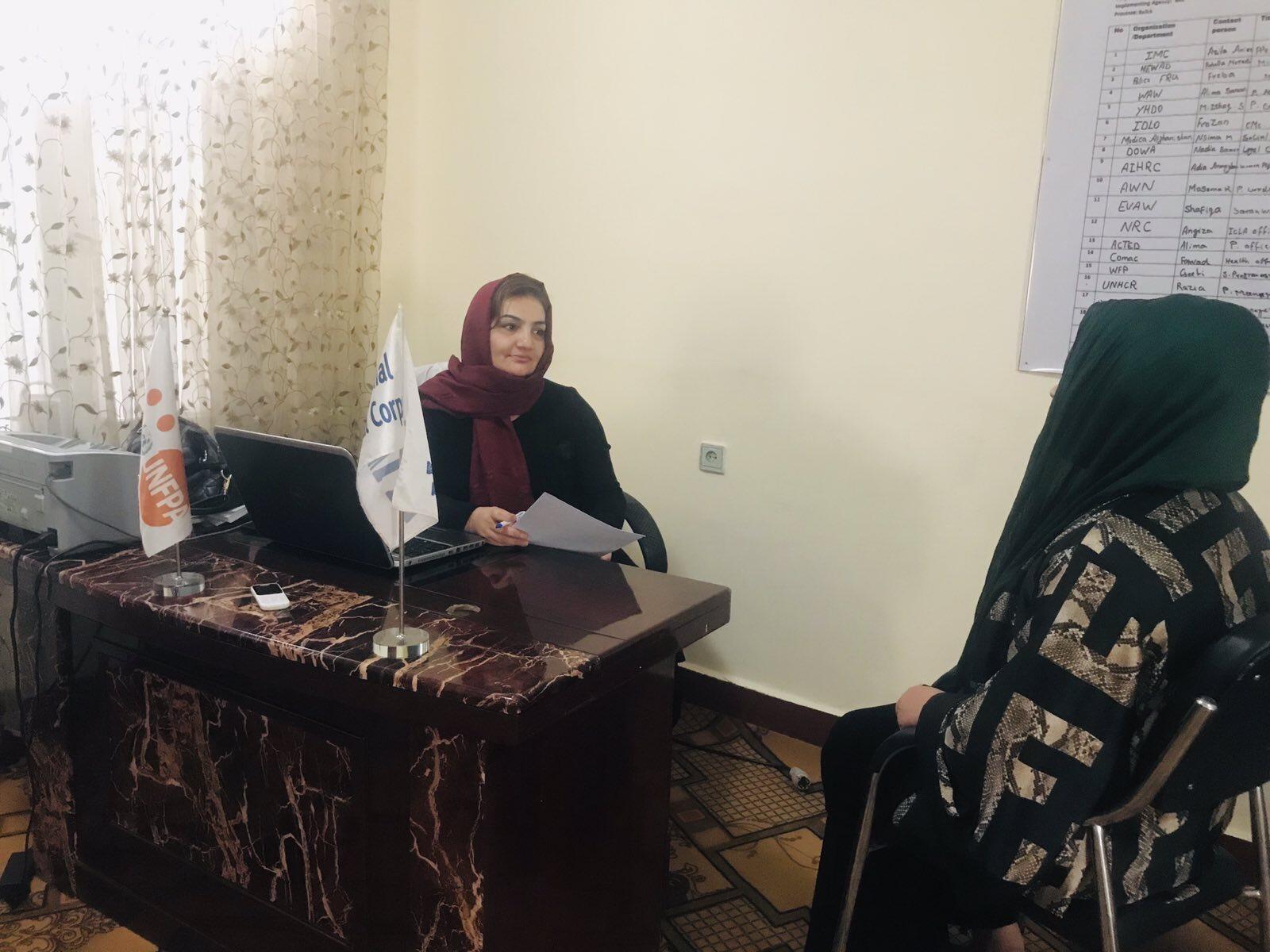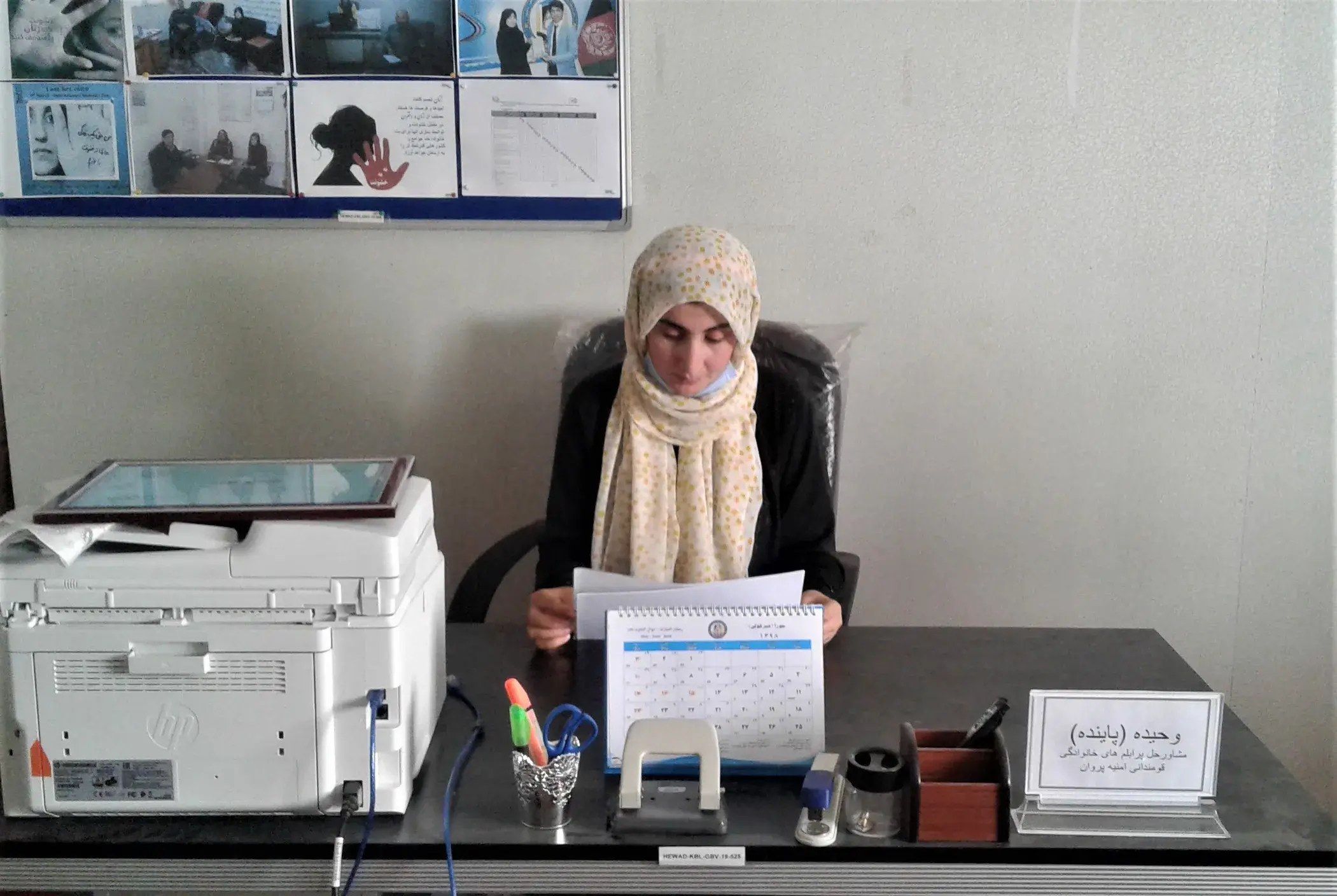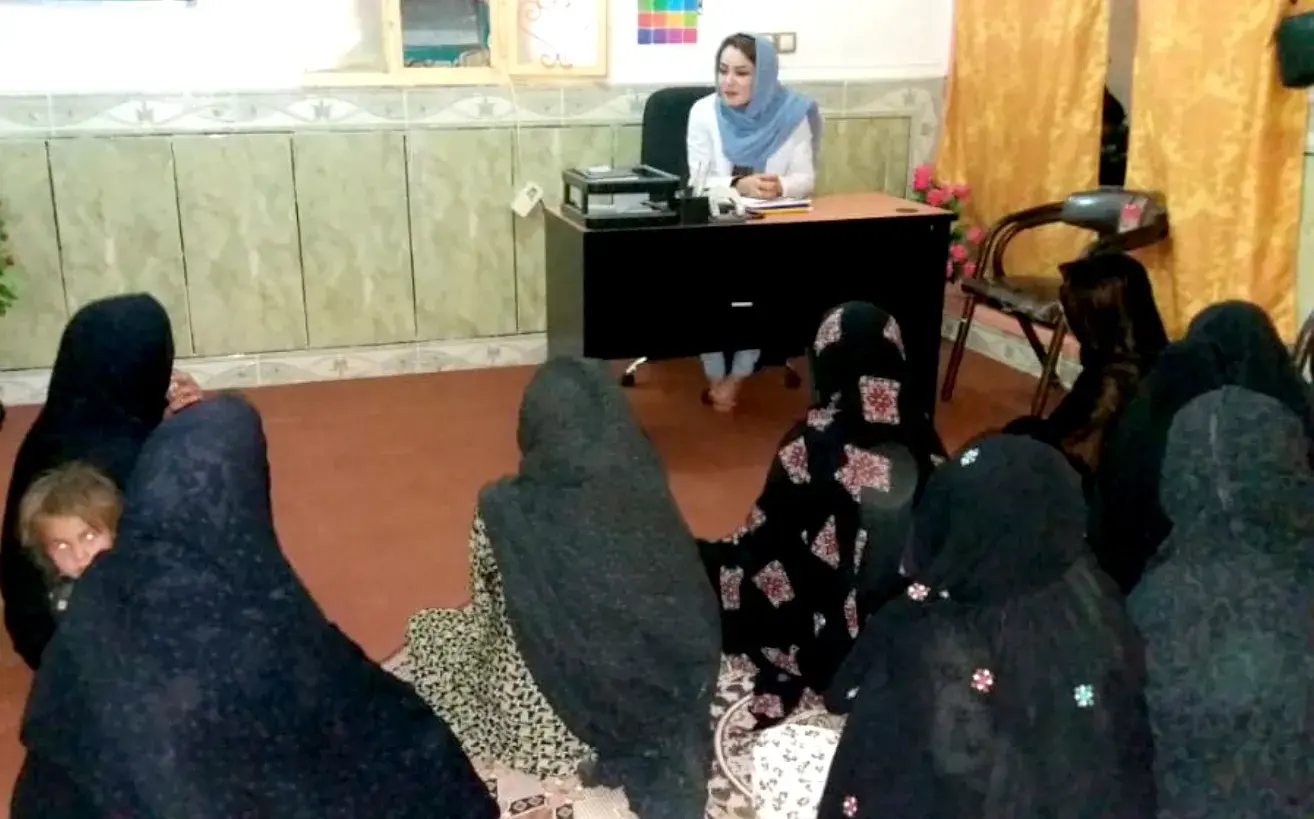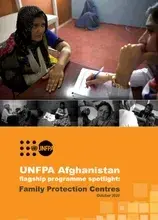Balkh, Afghanistan – The daily interaction with survivors of Gender Based Violence (GBV) has become a way of life for Azita Aryan over the past five years in Mazar-e-Sharif, the center of Balkh province in northern Afghanistan. Since 2015, Azita has been in charge of the local Family Protection Centre (FPC).
“As a woman, I used to feel that most of the women in my community were not able to speak up about the violence that happens against them. I knew there was a demand for help and support,” Azita told UNFPA. “And that’s why I decided to advocate for their [the GBV survivors’] rights and be their voice when they can’t speak up.”
Azita is a medical doctor by profession. Before 2015, she worked as a Gender-Based Violence (GBV) master trainer specifically for public health interventions. However, she decided that she could have a greater impact by working directly on GBV cases. “I decided to be the first responder for the girls and women who are subjected to violence. I knew it would be a long and dangerous path and the past five years have cemented that truth. But I’m not giving up. I am committed to continue.”
These are the women who have taken on the fight to end violence against women and girls in Afghanistan.
Supported by her husband, who is also a medical doctor, Azita has the motivation, courage, and familial support necessary to tackle one of the most difficult yet meaningful jobs in Afghanistan. Azita covers 14 districts in Balkh, a province with over 1.5 million people.
Psychosocial counselling, primary medical examinations, legal counselling, and referral of GBV cases for legal justice is the routine work of Azita. She also negotiates with the families of victims, especially the perpetrators—to find solutions for women in a context where leaving one’s abuser is not always possible for a variety of reasons (cultural, financial, familial, etc.). Success for Azita is measured in the lives she has been able to save and the positive impact she's had on her community’s constituents.
The prevalence of GBV in Balkh is due to various factors; traditional beliefs, behavioral norms among the families, and poverty are the most common reasons. “Lack of employment has resulted in the inability of the men in the family to earn enough to cover essential costs. This directly impact their relationship with their family where frustration is frequently expelled through violence.”
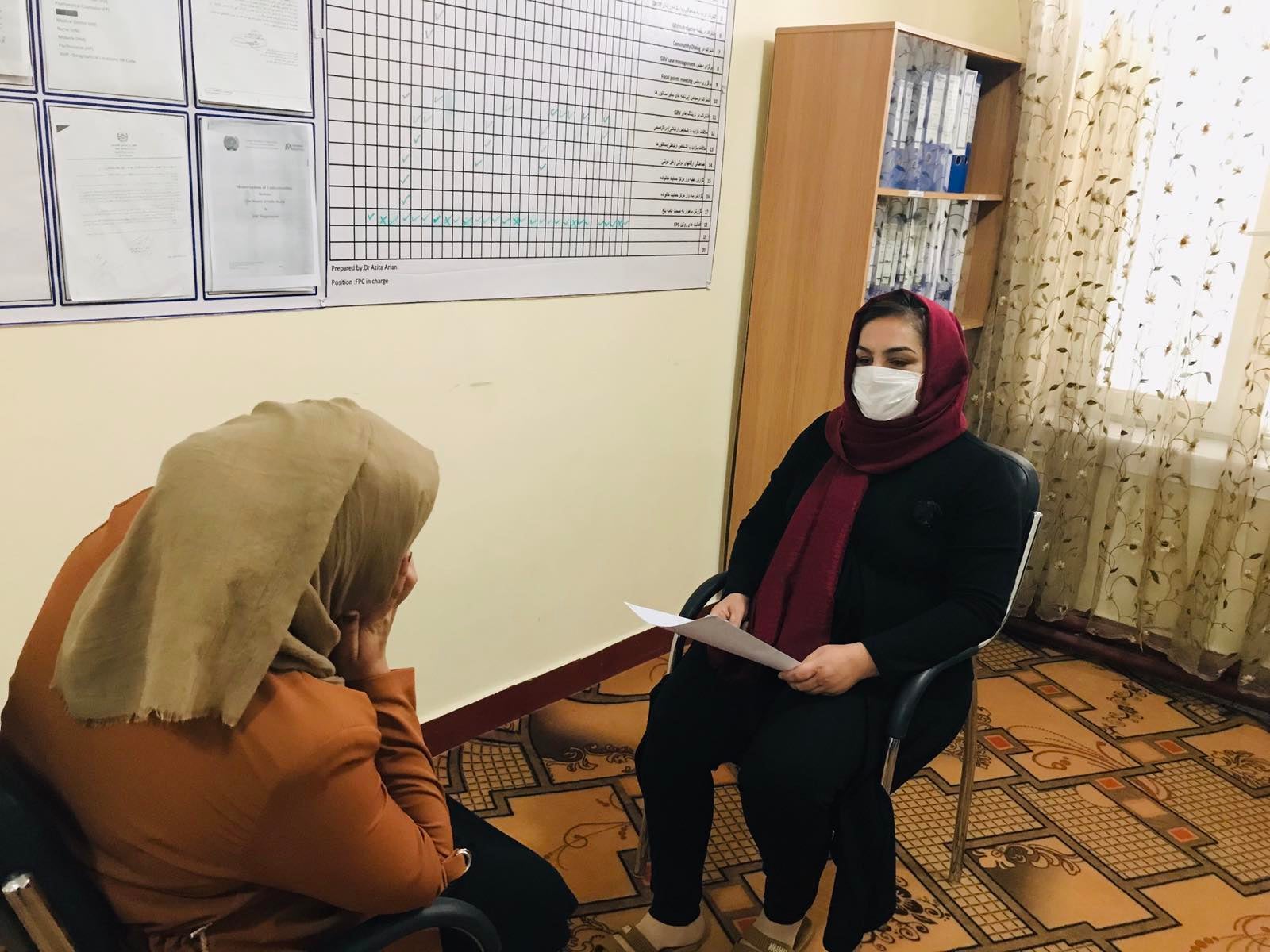
Negotiations with the perpetrators’ families is the most difficult part of Azita’s work, she explains. “Because these families think I may refer the cases to the police and law enforcement bodies. Building trust is hard.” FPCs are survivor centered in their approach, and as such all decisions on next steps are the survivor’s choice. “But when discussing the cases with these families, I intend to find the causes of violence, address the solutions properly, and ensure the survivors are reintegrated with their families—if that is their choice.”
Azita’s work on ending GBV and ending violence against women in Balkh province is welcomed by the provincial authorities. She has presented the achievements of her work at many senior level meetings and events. In 2018, she was selected as one of the 25 most influential women in Balkh for her dedicated services to women and girls in this province. “A committee led by the provincial governor assessed the work of key female activists in Balkh province and I’m honored to have been selected. This gives me inspiration that my work is important beyond just the individual woman I help.”
Like other parts of Afghanistan, women working in Balkh province face many challenges. Insecurity remains the key challenge, but many more exist as well. “I have been threatened several times as well. Most of the threats have been from the perpetrator’s families, because the families think I might be the reason for the separation of a wife and husband,” Azita admits. “But my mission has always been to support the survivor and hopefully resolve the root of the violence between the husband and wife. I have frequently explained that separation and divorce are not solutions. I want them to find peace and happiness if its within my power.”
Azita spearheads the work on GBV in Balkh province. However, she admits that her work is limited to her geography and the awareness of women’s rights in the community. More work needs to be done. “We need to increase awareness in the remote communities and ensure people know about the rights of women. This will help to reduce the violence against women. This will save lives.

